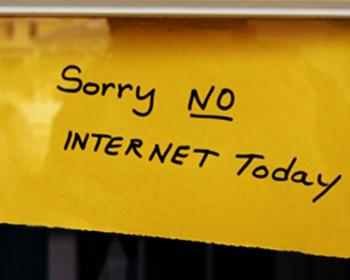Broadband
In response to a public consultation, APC joined Rhizomatica, the Internet Society, World Wide Web Foundation/Alliance for Affordable Internet, ARTICLE 19 Eastern Africa, Tunapanda Institute and Kenya ICT Action Network to present comments on Kenya's Revised National Broadband Strategy.
In a new position paper from APC, we unpack the underlying causes of limited connectivity, analyse the shortcomings of current initiatives, and propose a set of policy responses to address the access gap.
In a new position paper from APC, we unpack the underlying causes of limited connectivity, the shortcomings of current initiatives, and propose a set of policy responses to address the access gap.
<p>By <a href="http://www.flickr.com/photos/gavinmusic/">Gavin St. Ours</a> <a href="http://www.flickr.com/photos/gavinmusic/3922055137/">via Flickr</a></p>
In April 2013, the South African government published their proposal for a national broadband policy with the aim of ensuring “universal service and access to reliable, affordable and secure broadband services by all citizens prioritising, rural and under-serviced areas.” These are the comments officially submitted by APC.
The Andean region has some of the lowest fixed telephone line, mobile telephony and broadband penetration rates of all Latin America, the continent with the starkest economic disparities in the world. In the 90s, Andean countries adopted new liberalisation and privatisation policies in order to attain universal access. Almost 20 years later, these promises have not been fulfilled. APC studied e...
Venezuela’s advocacy action was carried out by EsLaRed and Funredes, the country’s AndinaTIC members, and focused on analysing a proposed reform of the telecommunications, information technology and postal service law. Among other things the law would grant greater control to the government which could pave the way for content regulation. The reform was proposed by organisations closely li...
Universal Access Funds, in Ecuador as well as several other countries of the region, were created in response to liberalisation and privatisation policies of the telecommunications companies. These funds, financed through a percentage of the companies’ profits, intended to finance projects to expand telecommunications infrastructure. This study analyses the Telecommunications Development Fun...
This exploratory study, carried out by Funredes and EsLaRed, analyses the use of the Universal Service Fund (FSU-Fondo de Servicio Universal) in Venezuela. Since 2001 the FSU has financed access points in different areas as well as infrastructure and access networks for communities and government agencies. The study indicates that only 30% of the funding has been allocated and that, of this su...
The objective of this action was to include civil society’s perspective on the right to communication in Ecuador’s new communications law. This law, which should be approved in 2009, comes out of the Andean country’s new constitution. Civil society actively participated in the constitutional process and was successful in incorporating aspects related to the right to communication. The pr...

Association for Progressive Communications (APC) 2022
Unless otherwise stated, content on the APC website is licensed under Creative Commons Attribution 4.0 International (CC BY 4.0)







